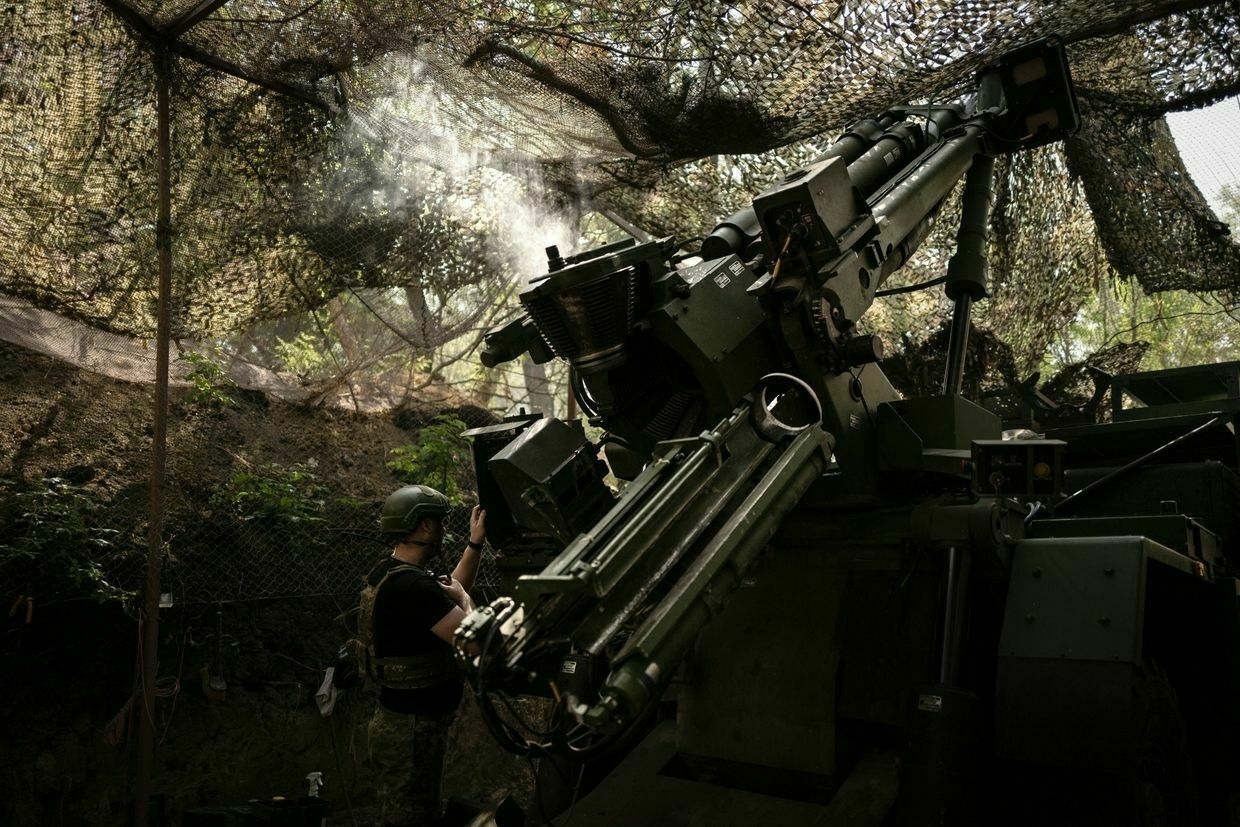
President Volodymyr Zelensky on June 15 condemned Russia’s latest mass attack against Ukraine, calling the strikes on energy infrastructure “a spit in the face of everything the international community is trying to do to stop this war."
Earlier in the day, Russia targeted the city of Kremenchuk in Poltava Oblast with a combined missile and drone attack, damaging energy and agricultural facilities. The strike involved nearly 200 drones and missiles, including both cruise and ballistic missiles. The attack came shortly after a phone call between U.S. President Donald Trump and Russian President Vladimir Putin.
In his nightly address, Zelensky said the attack on Kremenchuk was “deliberately and treacherously planned to target our civilian infrastructure” and that Russia intended to damage energy facilities.
“This is Russia’s spit in the face of everything the international community is trying to do to stop this war,” Zelensky said in his nightly address.
“It happened right after Putin’s conversation with Trump. After the Americans asked us not to strike Russian energy facilities. At the same time as Putin tries to portray himself as a mediator for the Middle East … The level of cynicism is staggering."
Following his call with Putin, Trump claimed he would be “open” to the Russian president acting as a mediator in the rapidly escalating conflict between Israel and Iran. Zelensky rejected the idea of Putin — who has waged war against Ukraine for over 10 years and has taken no steps towards a lasting ceasefire — playing the role of peacemaker.
Putin “is war itself,” Zelensky said, urging the international community not to fall for “Russian manipulation and lies.”
Zelensky also warned that Russia may be planning additional attacks on Ukraine’s energy sector, including nuclear power infrastructure. According to the president, Ukrainian intelligence agencies have obtained evidence of Russia’s threat and shared the information with the International Atomic Energy Agency (IAEA) and the Trump administration.
“Russia is planning further attacks on our energy sector — attacks that may be less visible to the world right now because all eyes are on the situation in the Middle East,” he said.
Throughout the full-scale war, Russia has attempted to disrupt Ukraine’s power grid through targeted attacks on energy infrastructure. After rejecting a U.S. proposal for a 30-day unconditional ceasefire in March, Moscow instead agreed to a month-long ceasefire on energy attacks.
Russia subsequently violated the partial ceasefire, which ended in in April. The Kremlin continues to refuse calls for an unconditional truce.
 The Kyiv IndependentKateryna Hodunova
The Kyiv IndependentKateryna Hodunova
